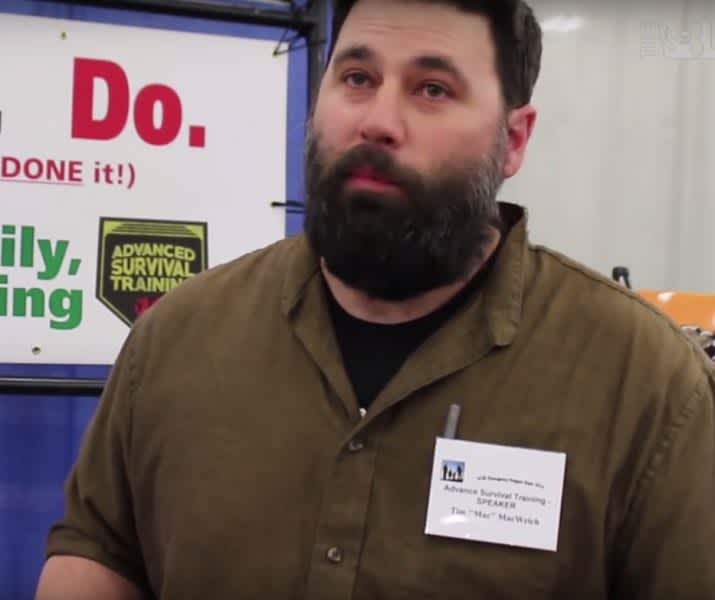Interview: Survivalist and NYT Best-Selling Author Tim MacWelch
OutdoorHub Staff 08.17.16

BA: Tim, explain what you do for a living.
TM: I’ve been blessed with the opportunity to turn survival skills into a career. I spend most of my professional time bouncing back and forth between writing about survival and teaching hands-on classes in the Mid-Atlantic. The classes are through my own school, Advanced Survival Training.
BA: How long have you been a survivalist?
TM: At least since I was a teenager. That’s when I really started researching survival skills and wilderness living. That’s been almost 30 years of obsessive study.
BA: Why do you enjoy survivalism so much?
TM: There are so many reasons that I enjoy the study and practice of survival skills. They make me feel closer to my self-reliant ancestors. They would be immensely useful in an emergency. They would keep me from wondering “what should I do?” in a survival situation. But most of all, they make me feel more confident that I can take care of myself and my loved ones if times get tough.
BA: What is your preferred method of fire starting?
TM: [no hesitation] Bow-and-drill friction fire starting is my favorite. I love traditional flint-and-steel because you get to make all these old-fashioned looking kits, which are very cool. But bow-and-drill even beats flint-and-steel for my affection because it’s such an art form. I really feel connected to nature and my ancestors when a field-built kit works and that little ember begins to glow.
BA: How do you trap game animals in a survival situation?
TM: Any way I can! Beggars can’t be choosers. Snares, deadfalls, fish traps and all their kin are welcome in my camp.
BA: What is the first thing you should do when you find yourself lost deep in the woods?
TM: Stop and collect your wits. It’s easy for panic to set in quickly, especially when we are in unfamiliar territory. But if we pause and take stock of the situation, we can maintain control of our fear and start making the right moves – shelter, water, fire, food, signaling for help.
BA: Tell us about some of your New York Times best-selling books.
TM: The books have been amazing. I’ve been working on random book ideas since 2001, but it’s hard to stay self-motivated on side projects when you’re busy being self-employed. I’d start a book, not like the way it was headed, and start another. Then life would get in the way, and I’d need to work on other things. But ever since I’ve been working with my publisher, Weldon Owen, they’ve kept me on track and given me incredible support. My first book, Prepare for Anything, spent several months on the New York Times best-seller list. It remains a popular book for those who want to build a foundation in preparedness. My other books have been popular, too. I’ve written one on hunting and gathering, one on survival scenarios, and one on winter survival. My fifth book is about off-the-grid survival skills and it will be available in the fall of 2016.
BA: What do students learn at your survival school?
TM: I’ve been running survival classes since 1997, and it’s been a remarkable journey. I get to share the skills I love. Fire making, foraging and archery are just a few of the class subjects I teach on a regular basis. At every class, I push my students to learn as much as they can. I want them to be ready, but I also want them to have a good time.
BA: Tim, thanks for spending the time on this interview.
TM: Thank you, Blake! It’s been a pleasure.
Editor’s note: For tips from Tim MacWelch on how your family should prepare for a disaster resulting in a food shortage, check out the video below.

